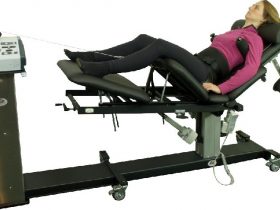Veterans in Australia make up a significant portion of the population, and it is important that they receive access to quality healthcare services when needed. However, navigating the medical system can be challenging for veterans, especially those suffering from service-related injuries or illnesses. To help alleviate some of the confusion and stress, we’ve put together a guide on how to access quality healthcare for veterans in Australia.
Firstly, it’s important to note that the Department of Veterans Affairs (DVA) offers a range of healthcare services to eligible veterans. To be eligible for Veteran Medical service, a person must have served at least one day in the Australian Defence Force (ADF) or allied forces, and meet certain criteria. These criteria can include a range of factors, such as the type of service performed, whether the veteran was in a war zone, and the length of service.
Once a veteran has been deemed eligible for healthcare services, they can access a range of medical treatments and support through DVA providers. These can include general practitioner services, specialist consultations, hospitalization, rehabilitation, and other services as required. It’s important to note that DVA healthcare services are not means-tested, so veterans can receive help regardless of their ability to pay.
In addition to DVA healthcare services, veterans can also access medical treatment through their local health services. As a veteran, you are entitled to the same healthcare services as any other Australian citizen, regardless of your service history. This means that you can access your local GP, hospital, and other medical services as needed. If you require specialist care, your GP may refer you to a specialist who has experience working with veterans.
Alongside medical treatment, veterans in Australia can also access mental health support services. This is an important consideration for many veterans, as they may be dealing with service-related trauma, anxiety, or depression. The DVA provides a range of mental health services, including access to psychologists, counselling, and group therapy. There are also many community-based organizations that provide support to veterans in need.
Finally, veterans can access a range of allied health services to support their health and wellbeing. These services can include physiotherapy, occupational therapy, podiatry, and other services as required. Allied health services can help veterans to manage chronic pain, improve mobility, and maintain overall health and wellbeing.
Accessing quality healthcare for veterans in Australia can be challenging, but there are many resources available to support them. From DVA healthcare services to local health providers, veteran-specific support services, and allied health care, there are options available to meet the unique needs of veterans. If you’re a veteran in need of healthcare, we hope that this guide has provided you with some helpful resources and contacts to get started on your journey to a happier and healthier life.










